New England Center for Continuing Education
Course Information
- Audience: Public Health team leaders, supervisors and aspiring public health and health profession leaders
- Format: Self-Paced
- Price: Free
- Length: 1 hour
- Credential(s) eligible for contact hours: If you complete the post-test and evaluation, you will receive a Certificate of Completion. The Certificate will include the length of the course.
- Competencies: Leadership and Systems Thinking Skills
- Learning Level: Awareness
- Companion Trainings: None
- Supplemental materials: None
- Pre-requisites: None
About this course
Behavioral scientist and professor Katy Milkman explores the inner workings of change in her book How to Change: The Science of Getting from Where You Are to Where You Want to Be. In this course, you'll learn about behavioral change and explore strategies you can use to achieve your own goals. You'll also discover what keeps us from changing and how we can overcome these typical barriers to change.
This course is provided in partnership with the Next Big Idea Club and Articulate 360.
What you'll learn
After completing the training, you will be able to...
- Describe the value of identifying fresh start times to attempt a change
- Explain why elastic habits are stronger habits
- List 2 examples of "temptation bundling"
- Distinguish between hard and soft commitments to identify an appropriate strategy for yourself
- Describe how emulating peers can support positive behavior change
Subject Matter Expert
-

Katy Milkman
Katy Milkman is the James G. Dinan Professor at The Wharton School of the University of Pennsylvania, host of Charles Schwab's popular behavioral economics podcast Choiceology, and the former president of the international Society for Judgment and Decision Making. She is also the co-founder and co-director of the Behavior Change for Good Initiative, a research center with the mission of advancing the science of lasting behavior change. Over the course of her career, Katy has worked with or advised dozens of organizations on how to spur positive change, including Google, the U.S. Department of Defense, the American Red Cross, 24 Hour Fitness, Walmart and Morningstar. An award-winning scholar and teacher, Katy writes frequently about behavioral science for major media outlets such as The Washington Post, The New York Times, and The Economist. Her bestselling book How to Change: The Science of Getting From Where You Are to Where You Want to Be was named one of the eight best books for healthy living in 2021 by the New York Times, and Katy was also named one the world's top 50 Management thinkers by Thinkers50 in 2021. Katy earned her undergraduate degree from Princeton University (summa cum laude), where she studied Operations Research and American Studies, and her PhD from Harvard University where she studied Computer Science and Business.
Enrollment and Contact Hours
Select the Enroll Me button below to register for this course. If you have any trouble accessing the recording, contact support@nephtc.org.
Acknowledgement: This project is supported by the Health Resources and Services Administration (HRSA) of the U.S. Department of Health and Human Services (HHS) as part of award 2 UB6HP31685‐05‐00 "Public Health Training Centers." The contents are those of the author(s) and do not necessarily represent the official views of, nor an endorsement, by HRSA, HHS or the U.S. Government.

Grant Writing Basics
What are the best practices you should know to write a winning grant proposal and maintain long-term support?

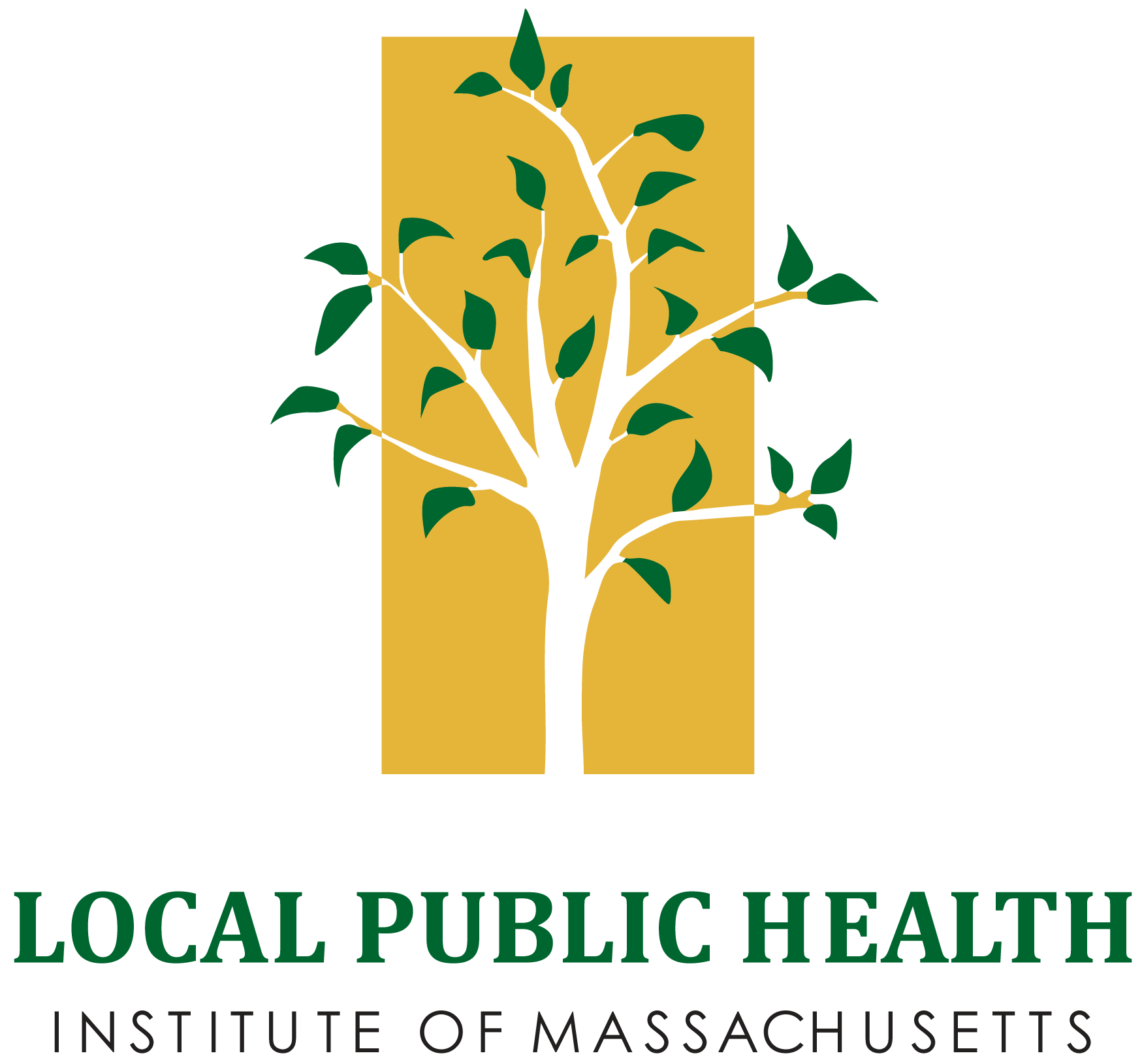
Enroll
Course Information
- Audience: Public health professionals
- Format: Self-Paced
- Price: Free
- Length: 1.5 hours
- Credential(s) eligible for contact hours: If you complete the post-test and evaluation, you will receive a Certificate of Completion. The Certificate will include the length of the course.
- Competencies: Financial Planning and Management
- Learning Level: Awareness
- Companion Trainings: None
- Supplemental materials: Course Guide and Technical Requirements (PDF)
- Pre-requisites: None
About this course
Learners will uncover the essential components of grant writing, including where to find the right funding, the implications of different application processes, and the structural components of a grant proposal. Learners will also have the opportunity to assist a program manager with writing a grant for a hypothetical scenario.
What you'll learn
After completing the training, you will be able to...
- Distinguish between different grant types
- List the three main sources of funding
- Identify where to look for grants
- Describe best practices when crafting the various sections of a compelling grant proposal
- Outline tips for winning and maintaining a grant proposal
Subject Matter Experts
-

Kathleen MacVarish, MSAssociate Professor of the Practice,
Boston University
School of Public Health
Enrollment and Contact Hours
Select the Enroll Me button below to register for this course. If you have any trouble accessing the recording, contact support@nephtc.org.
Acknowledgement: This project is supported by the Health Resources and Services Administration (HRSA) of the U.S. Department of Health and Human Services (HHS) as part of award 2 UB6HP31685‐05‐00 "Public Health Training Centers." The contents are those of the author(s) and do not necessarily represent the official views of, nor an endorsement, by HRSA, HHS or the U.S. Government.

Course Information
- Audience: Dental Health Professionals; other public health educators who want to have positive conversations with parents and caregivers about healthy eating choices
- Format: Self-paced
- Price: Free
- Length: 1 hour 20 minutes
- Credential(s) eligible for contact hours:
Sponsored by New England Public Health Training Center (NEPHTC), a designated provider of continuing education contact hours (CECH) in health education by the National Commission for Health Education Credentialing, Inc. This program is designated for Certified Health Education Specialists (CHES) and/or Master Certified Health Education Specialists (MCHES) to receive up to 1 total Category I continuing education contact hour. Maximum advanced-level continuing education contact hour is 0. Provider ID: 1131137 Event ID: SS1131137_HECCDH .
If you are not seeking a CHES/MCHES contact hours, if you complete the post-test and evaluation, you will receive a Certificate of Completion. The Certificate will include the length of the course.
- Competencies: Communication Skills
- Learning Level: Awareness
- Companion trainings: None
- Supplemental materials: None
- Pre-requisites: None
About this workshop
This course is designed to teach dental hygienists the skills they need to talk with parents about eating a balanced diet. The course focuses on using accessible and encouraging language as well as providing talking points and conversation starters to use with parents during dental visits.
What you'll learn
After completing this course, you will be able to:
- Use non-stigmatizing language to talk about food and weight.
- Explain the Go-Slow-Whoa framework for making healthier food choices.
- Demonstrate to families how to identify the sugar content in drinks.
- Explain how parents and kids can share decision-making around food.
Subject Matter Experts
-

Alison Tovar
Department of Behavioral and Social Sciences, Center for Health Promotion and Health Equity, Brown School of Public Health -

Kate Balestracci
PhD, RDN
Program Manager,
SNAP-Ed and
CYFAR
University of Rhode Island -

Samuel Zwetchkenbaum
DDS, MPH
State Dental Director
Rhode Island
Department of Health -

Sadie DeCourcy
JD
Oral Health Program Manager, Rhode Island Department of Health
Alison Tovar is an Associate Professor in the Department of Nutrition and Food Sciences at the University of Rhode Island (URI). Originally from Bogotá, Colombia, she received her Bachelor of Science in Psychology from Northeastern University in 2001, a Master's in Public Health from Tufts University School of Medicine in 2005, and her Ph.D. from the Friedman School of Nutrition Science and Policy in 2009. Dr. Tovar established The Healthy Feeding, Health Eating Lab in 2012, with the goal to understand factors that shape eating behaviors early in life, in order to inform community-based interventions among diverse, underrepresented populations.
Kate Balestracci is a program manager and co-principal investigator for community nutrition grants that run through the University of Rhode Island's Department of Nutrition and Food Sciences. She is a graduate from the University of Massachusetts Amherst with a degree in Exercise Physiology. She then pursued a master's degree, and later a doctoral degree, in nutrition from the University of Rhode Island. As an accredited Registered Dietitian, Kate has worked in community nutrition since 2007 to provide hands-on nutrition education to the Rhode Island community.
Dr. Sam Zwetchkenbaum is the Dental Director in the Oral Health Program at the Rhode Island Department of Health and Medicaid Dental Director at the Executive Office of Health and Human Services. He is a graduate of Moses Brown School in Providence, Brown University, and the University of North Carolina School of Dentistry. He received his Master in Public Health (MPH) from the University of Michigan. He has taught and practiced in a number of academic settings, including 17 years at the University of Michigan Hospital Dentistry program providing clinical care and directing the General Practice Residency. Sam is a Past President of the Special Care Dentistry Association.
Sadie DeCourcy is the Oral Health Program Manager at the RI Department of Health. Beginning with her role as the Health Coverage Project Coordinator at The Economic Progress Institute, Ms. DeCourcy has pursued a path in public health; empowering people to make informed decisions about their health. Some of her past work includes advocate engagement around the Affordable Care Act implementation, health policy development and oversight with former RI Lieutenant Governor Elizabeth Roberts, and implementing a perinatal and infant oral health quality improvement project at the RI Department of Health. Ms. DeCourcy is a graduate of The George Washington University (B.A.) and Suffolk University Law School (J.D.).
Enrollment and Contact Hours
Select theEnroll button below to register for the course. If you have any trouble accessing the course, contact support@nephtc.org.
Acknowledgement: This project is supported by the Health Resources and Services Administration (HRSA) of the U.S. Department of Health and Human Services (HHS) as part of award 2 UB6HP31685‐05‐00 "Public Health Training Centers." The contents are those of the author(s) and do not necessarily represent the official views of, nor an endorsement, by HRSA, HHS or the U.S. Government.
This training was supported by the Health Resources and Services Administration (HRSA) of the U.S. Department of Health and Human Services (HHS) as part of a financial assistance award totaling $400,000 with 100% funded by HRSA/HHS and 0% funded by nongovernment source(s). The contents are those of the author(s) and do not necessarily represent the official views of, nor an endorsement, by HRSA/HHS, or the U.S. Government.
* Yale School of Public Health, Office of Public Health Practice, a New England Public Health Training Center partner, is a designated provider of continuing education contact hours (CECH) in health education by the National Commission for Health Education Credentialing, Inc. All CHES credit inquiries are managed by YSPH

Course Information
- Audience: Community Health Workers and other public health professionals needing client interviewing skills to capture information relevant to the services offered by your agency/network..
- Format: Self-paced
- Price: Free
- Length: 45 minutes
- Credential(s) eligible for contact hours:
Sponsored by New England Public Health Training Center (NEPHTC), a designated provider of continuing education contact hours (CECH) in health education by the National Commission for Health Education Credentialing, Inc. This program is designated for Certified Health Education Specialists (CHES) and/or Master Certified Health Education Specialists (MCHES) to receive up to .75 total Category I continuing education contact hour. Maximum advanced-level continuing education contact hour is .75. Provider ID: 1131137 Event ID: SS1131137_IICHW.
If you are not seeking a CHES/MCHES contact hours, if you complete the post-test and evaluation, you will receive a Certificate of Completion. The Certificate will include the length of the course.
- Competencies: Communication Skills
- Learning Level: Awareness
- Companion trainings: Introduction to HIPAA for CHWs
Introduction to Ethics for CHWs and
Introduction to Outreach Methods and Strategies - Pre-requisites: None
- Supplemental materials: PREPARE Tool
About this course
Community Health Worker interviews capture information about client circumstances relevant to the services offered by CHW agencies and/or network. The interview process relies on multiple skills and is one of the most important tools used by CHWs.
What you'll learn
After completing this course, you will be able to...
- Identify a tool used by CHWs to assess Social Determinants of Health (SDH)
- Explain 3 tasks to complete prior to the CHW interview
- Identify skills used in a client interview
- List 2-3 protocols to understand prior to beginning the interview
Subject Matter Expert
-

Dawn Heffernan
Dawn Heffernan is a nurse and a public health professional who has supervised and trained community health workers for over a decade. Ms. Heffernan is passionate about community health and education. In addition to developing training for the New Public Health Training Center, she is currently working for Partners in Health as a case investigator for the corona virus pandemic.
Enrollment and Contact Hours
Select theEnroll button below to register for the course. If you have any trouble accessing the course, contact support@nephtc.org.
Acknowledgement: This project is/was supported by the Health Resources and Services Administration (HRSA) of the U.S. Department of Health and Human Services (HHS) under grant number UB6HP31685 "Regional Public Health Training Center Program." This information or content and conclusions are those of the author and should not be construed as the official position or policy of, nor should any endorsements be inferred by HRSA, HHS or the U.S. Government.
* Yale School of Public Health, Office of Public Health Practice, a New England Public Health Training Center partner, is a designated provider of continuing education contact hours (CECH) in health education by the National Commission for Health Education Credentialing, Inc. All CHES credit inquiries are managed by YSPH

Building a Culture of Resilience
What quick learning is available to support public health professionals develop resilience at the community, organizational or personal level during times of adversity and significant stress?
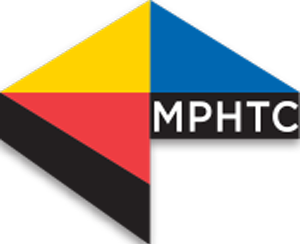
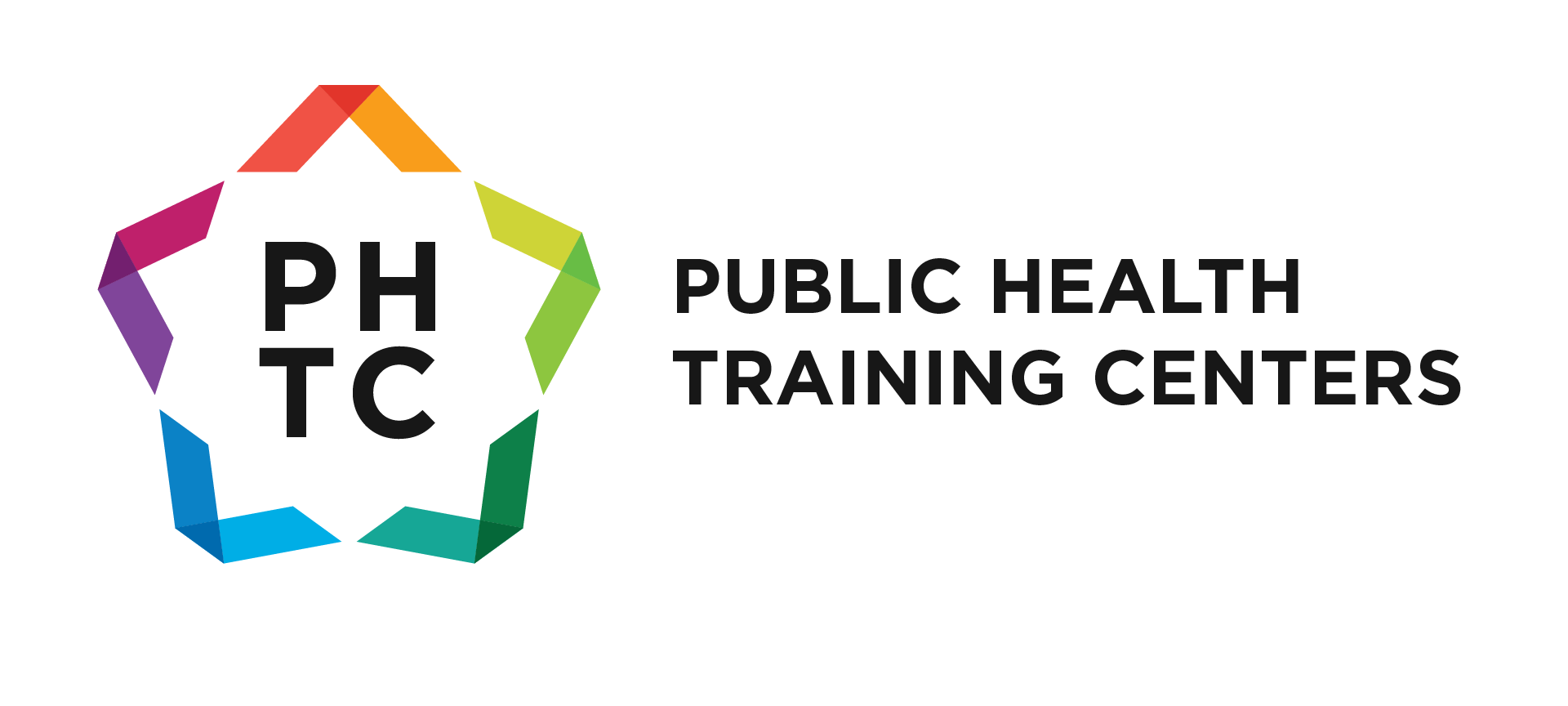
Register
Course Information
- Audience: Public health professionals, especially those managing teams and influencing the community, interested in promoting resilience.
- Format: Webinar
- Date/Time:
2019-2021 and ongoing
- Price:
Free
- Time: A continuously growing collection of microlearnings, covering 3 topic areas, mostly under 5 minutes. Takes 2 hours to complete all training.
- Credential(s) eligible for contact hours: If you complete the evaluation, you will receive a Certificate of Completion. The Certificate will include the length of the course.
- Competencies: Leadership and Systems Thinking Skills
- Learning Level: Awareness
- Companion Trainings: Building Resiliency in Extended Events (Sessions 1, 2 and 3)
Building Resiliency in Extended Events (Sessions 4, 5 and 6)
Both of these courses are CHES/MCHES eligible.
- Supplemental materials: Session PowerPoint
- Pre-requisites:
About this Course
Resilience is defined by psychologists as the process of adapting well in the face of adversity, trauma, tragedy, threats, or significant sources of stress. This collection of micro-learnings and resources will equip learners with practical actions and tools that can be applied in any environment by changing thoughts and behaviors in times of adversity and trauma.
This resource was developed by the Public Health Learning Network, a consortium of regional Public Health Training Centers, the country's most comprehensive resource for public health workforce development. Program management and instructional design of this resource was provided by the Midwest Public Health Training Center.
Registration and Contact Hours
Select the Enroll button below to register for this webinar. If you have any trouble accessing the webinar, contact support@nephtc.org.
Acknowledgement : This project is/was supported by the Health Resources and Services Administration (HRSA) of the U.S. Department of Health and Human Services (HHS) under grant number UB6HP31685 "Regional Public Health Training Center Program." This information or content and conclusions are those of the author and should not be construed as the official position or policy of, nor should any endorsements be inferred by HRSA, HHS or the U.S. Government.
* Yale School of Public Health, Office of Public Health Practice, a New England Public Health Training Center partner, is a designated provider of continuing education contact hours (CECH) in health education by the National Commission for Health Education Credentialing, Inc. All CHES credit inquiries are managed by YSPH

Course Information
- Format: Self-paced
- Price: Free
- Length: 5.5 hours
- Credential(s) eligible for contact hours: Sponsored by New England Public Health Training Center (NEPHTC), a designated provider of continuing education contact hours (CECH) in health education by the National Commission for Health Education Credentialing, Inc. This program is designated for Certified Health Education Specialists (CHES) to receive up to 5.5 total Category I continuing education contact hours. Maximum advanced-level continuing education contact hours are 0. Provider ID: 1131137 Event ID: SS1131137_MMPH.
If you are not seeking CHES contact hours, if you complete the evaluation, you will receive a Certificate of Completion. The Certificate will include the length of the course. - Competencies: Data Analytics and Assessment Skills,
Policy Development and Program Planning Skills,
Communication Skills,
Health Equity Skills,
Community Partnership Skills, Leadership and Systems Thinking Skills - Learning Level: Awareness
- Supplemental materials: Course Guide and Technical Requirements (PDF)
- Pre-requisites: None
About this course
The world's health needs are changing - evolving day to day, sometimes even hour to hour. It is the role of public health to investigate pressing challenges and to develop meaningful interventions that improve conditions affecting population health. Through this course created by PHX, and adapted by NEPHTC, local board of health officials in Massachusetts have the opportunity to gain foundational knowledge in public health in order to be more effective health and wellness leaders in their community.
What you'll learn
After completing this course, you will be able to...
- Explain the differences between health and public health
- Understand how data is collected and used in practice
- Advocate effectively for change
- Detail the laws and policies related to your daily practice
- Determine root causes of public health issues, and use a public health approach to address them
Enrollment and Contact Hours
The Certificate of Completion will include the length of the module. Generally 50 – 60 minutes is equivalent to 1 contact hour. Contact hours may be applicable towards continuing education requirements for certain credentials. Check with your credentialing body to verify if the topic meets its continuing education requirements.
Having trouble accessing the course? Contact support@nephtc.org
Acknowledgement:
This project is/was supported by the Health Resources and Services Administration (HRSA) of the U.S. Department of Health and Human Services (HHS) under grant number UB6HP27877 "Regional Public Health Training Center Program". This information or content and conclusions are those of the author and should not be construed as the official position or policy of, nor should any endorsements be inferred by HRSA, HHS or the U.S. Government.
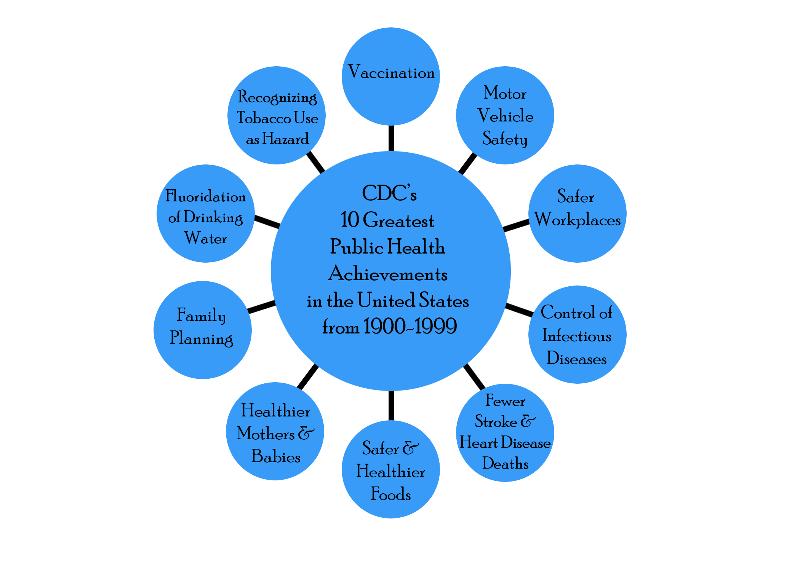
Course Information
- Audience: Community Health Workers, CHW Supervisors, Health Education Professionals
- Format: Self-paced
- Price: Free
- Length: 1.5 hours
- Credential(s) eligible for contact hours: Certificate of completion
- Competencies: Communication Skills
- Learning Level: Awareness.
- Companion trainings:
- Pre-requisites: None
About this course
Trauma-Informed Conversations (or TIC) are particularly important when working with vulnerable clients or patients. A trauma-informed approach acknowledges that individuals are made vulnerable by the ways our social systems are designed and recognizes that each individual processes and reacts to trauma differently.
In this course we will discuss trauma and resiliency and provide practical tips for Community Health Workers and other providers on how to act as facilitators, connectors, and supportive teammates in advancing a client's particular goals for their clinical care or general health.
What you'll learn
After completing this course, you will be able to...
- Describe trauma and resiliency
- Identify different stress responses that are common in individuals
- Identify strategies for conducting trauma-informed conversations
-

Samantha Calero
Samantha Isabel Calero (Sam, she/her) is a biracial Latinx public health consultant. Her work includes training and facilitation, technical assistance, policy analysis and development and organizational capacity building to address trauma, resiliency, racial and gender justice. She approaches her work with an intersectional, margins-to-center lens of relationship building and critical analysis for change. Sam is a member of Mijente and currently is completing her master's degree in health policy at the Harvard T.H. Chan School of Public Health. She lives in Roxbury with her daughter.
Enrollment and Contact Hours
Select theEnroll button below to register for the course. If you have any trouble accessing the course, contact support@nephtc.org.
Acknowledgement:
This project is/was supported by the Health Resources and Services Administration (HRSA) of the U.S. Department of Health and Human Services (HHS) under grant number UB6HP31685 "Regional Public Health Training Center Program." This information or content and conclusions are those of the author and should not be construed as the official position or policy of, nor should any endorsements be inferred by HRSA, HHS or the U.S. Government.

Course Information
- Audience: Public health organizations and professionals interested in workforce development; leaders and managers responsible for developing and delivering training and learning experiences to improve public health.
- Format: Self-paced online training
- Price: Free
- Length: 1 hour
- Credential(s) eligible for contact hours:
Sponsored by New England Public Health Training Center (NEPHTC), a designated provider of continuing education contact hours (CECH) in health education by the National Commission for Health Education Credentialing, Inc. This program is designated for Certified Health Education Specialists (CHES) and/or Master Certified Health Education Specialists (MCHES) to receive up to 1 total Category I continuing education contact hour. Maximum advanced-level continuing education contact hour is 1. Provider ID: 1131137 Event ID: SS1131137_HTA .
If you are not seeking a CHES/MCHES contact hours, if you complete the post-test and evaluation, you will receive a Certificate of Completion. The Certificate will include the length of the course.
- Competencies: Financial Planning and Management Skills
- Learning Level: Awareness
- Companion trainings: None
- Supplemental materials: Resources PDF file
- Pre-requisites: None
About this workshop
This workshop will teach you the science behind how adults learn. You'll learn how to make learning engaging and actionable for your learners, as well as strategies for ensuring your participants mastered your content.
What you'll learn
After completing this course, you will be able to...
- Explain the principles of adult learning
- Create learning experiences for different learning styles
- Assess the needs of learners
- Write measurable learning objectives
- Create positive and productive learning spaces
- Give clear instructions
- Provide actionable feedback
Subject Matter Expert
-

Dr. Ariela Freedman, PhD, MPH, MAT
Dr. Ariela Freedman is an experienced trainer with over 20 years of experience in education and public health, including CDC, state and local public health departments, Head Start, camps and afterschool programs, nonprofits, and public schools. She also works with corporate clients and health care professionals, with a specific focus on empowering women. As a Gallup-certified Strengths coach, she facilitates Strengths workshops with a focus ondeveloping skills in leadership, management, communication,and team building. Ariela's workshops are known for being interactive, creative, fun, and designed for immediate use. Ariela has a PhD in Behavioral Sciences and Health Education from Emory University and an MPH from the University of Minnesota. Ariela also has a Master of Arts in Teaching and a BA in English Literature. She is also a certified Positive Discipline Trainer. Ariela is the Owner and Founder of MavenTree Consulting and an Adjunct Assistant Professor at Emory University. Ariela began her career as a high school English, Drama, and Debate teacher in Chicago. She later directed health programming at Head Start in Minneapolis, then served as an Assistant Professor in the Rollins School of Public Health at Emory University. In addition to her consulting work, Ariela sings with her synagogue choir and teaches art workshops in her home art studio.
Enrollment and Contact Hours
Select theEnroll button below to register for the course. If you have any trouble accessing the course, contact support@nephtc.org.
Acknowledgement:
This project is/was supported by the Health Resources and Services Administration (HRSA) of the U.S. Department of Health and Human Services (HHS) under grant number UB6HP31685 "Regional Public Health Training Center Program." This information or content and conclusions are those of the author and should not be construed as the official position or policy of, nor should any endorsements be inferred by HRSA, HHS or the U.S. Government.
* Yale School of Public Health, Office of Public Health Practice, a New England Public Health Training Center partner, is a designated provider of continuing education contact hours (CECH) in health education by the National Commission for Health Education Credentialing, Inc. All CHES credit inquiries are managed by YSPH

Course Information
- Audience: Public health professionals, veterinarians, human health clinicians, environmental scientists, students, and others interested in zoonotic and vectorborne diseases
- Format: Recorded screencasts, available on demand
- Price: Free
- Length: 4 screencasts, 30 minutes each (2 hours total)
- Credential(s) eligible for contact hours:
Sponsored by New England Public Health Training Center (NEPHTC), a designated provider of continuing education contact hours (CECH) in health education by the National Commission for Health Education Credentialing, Inc. This program is designated for Certified Health Education Specialists (CHES) and/or Master Certified Health Education Specialists (MCHES) to receive up to 1 total Category I continuing education contact hour. Maximum advanced-level continuing education contact hour is 1. Provider ID: 1131137 Event ID: SS1131137_12152020 .
If you are not seeking a CHES/MCHES contact hours, if you complete the post-test and evaluation, you will receive a Certificate of Completion. The Certificate will include the length of the course.
- Competencies: Public Health Sciences Skills
- Learning Level: Awareness
- Companion trainings: An Introduction to One Health
- Pre-requisites: None
About this course
In the first of four screencasts the public health practitioner is introduced to zoonoses and vectorborne diseases and how they differ from other infectious diseases. In subsequent screencasts, the factors (drivers) that influence zoonoses and vectorborne disease are explained, including human systems, human-animal-environment interaction, and environmental change. Multiple disease-specific examples are provided, including COVID-19.
Zoonotic diseases are those that can be passed between humans and other vertebrate animals and vectorborne disease are those that are transmitted by an arthropod vector like a flea or tick. Because non-human animals serve as a disease reservoir or vector, disease prevention and control strategies differ from other infectious diseases. More than half, an estimated 60%, of all the kinds of infections that people can get are zoonotic and 75% of emerging infectious diseases, including COVID-19, are zoonotic. There are many human-driven factors that influence zoonotic disease emergence and re-emergence. These drivers include infrastructure, travel and trade, culture, agricultural intensification, interaction with domestic and wild animals, climate change, land use, and biodiversity. In this series of four screencasts, you will be introduced to zoonotic and vectorborne diseases and their drivers.
What you'll learn
After completing this course, you will be able to...
Introduction to Zoonoses and Vectorborne Diseases
- Define zoonoses, vectorborne diseases, emerging zoonotic diseases, reverse zoonoses, reservoir host, amplification, dead-end host, and spillover
- List key drivers of zoonotic and vectorborne diseases
- Describe how the following disease prevention and control tools differ for zoonotic and vectorborne diseases: education, surveillance, vector control, diagnostics, outbreak investigation, host identification, and vaccination
- Define One Health and explain why this approach is useful for addressing zoonotic and vector-borne diseases
Drivers of Zoonotic Diseases: Human Systems
- List key drivers of zoonotic and vectorborne diseases related to human systems and culture
- Provide examples of how infrastructure influences zoonotic and vectorborne diseases
- Provide examples of zoonotic and vectorborne diseases that have emerged as a result of human travel and trade
- Provide examples of how culture impacts zoonotic and vectorborne disease
Drivers of Zoonotic Diseases: Human-animal-environment Interactions
- List key drivers of zoonotic and vectorborne disease related to human-animal interactions
- Provide examples of diseases that can be spread from pets and livestock to people
- Explain how agricultural systems influence zoonotic and vectorborne diseases
- Provide examples of zoonotic and vectorborne diseases that can result from human or domestic animal interaction with wildlife
Drivers of Zoonotic Diseases: Environmental Change
- List three key environmental drivers that impact zoonotic and vectorborne disease
- Provide examples of zoonotic and vectorborne disease influenced by weather and climate
- Explain how land use and ecosystem disruption can impact zoonotic and vectorborne diseases
- Explain how biodiversity can impact zoonotic and vectorborne diseases
Subject Matter Expert
-

Lynn Zanradi Blevins
Lynn Zanradi Blevins has been practicing public health in government and academic settings for 20 years in the areas of infectious disease, environmental health, emergency preparedness, and One Health (human-animal-environmental health).
Enrollment and Contact Hours
Select theEnroll button below to register for the course. If you have any trouble accessing the course, contact support@nephtc.org.
Acknowledgement:
This project is/was supported by the Health Resources and Services Administration (HRSA) of the U.S. Department of Health and Human Services (HHS) under grant number UB6HP31685 "Regional Public Health Training Center Program." This information or content and conclusions are those of the author and should not be construed as the official position or policy of, nor should any endorsements be inferred by HRSA, HHS or the U.S. Government.
* Yale School of Public Health, Office of Public Health Practice, a New England Public Health Training Center partner, is a designated provider of continuing education contact hours (CECH) in health education by the National Commission for Health Education Credentialing, Inc. All CHES credit inquiries are managed by YSPH

Course Information
- Audience: Community Health Workers, CHW Supervisors, Health Education Professionals
- Format: Self-paced
- Price: Free
- Length: 1 hour
- Credential(s) eligible for contact hours: Sponsored by New England Public Health Training Center (NEPHTC), a designated provider of continuing education contact hours (CECH) in health education by the National Commission for Health Education Credentialing, Inc. This program is designated for Certified Health Education Specialists (CHES) and/or Master Certified Health Education Specialists (MCHES) to receive up to 1 total Category I continuing education contact hours. Maximum advanced-level continuing education contact hours are 1. Provider ID: 1131137 Event ID: SS1131137_IHIPAACHW.
If you are not seeking CHES/MCHES contact hours, if you complete the evaluation, you will receive a Certificate of Completion. The Certificate will include the length of the course. - Competencies: Communication Skills, Health Equity Skills
- Learning Level: Awareness.
- Companion trainings: Introduction to Ethics for CHWs, Interviewing for CHWs
- Pre-requisites: None
About this course
By the nature of their role, community health workers manage sensitive information about clients and communities. Community health worker practice relies on laws and protocols to guide their decisions about how to handle client information. One of the most important laws established to protect the privacy and confidentiality of health information is commonly referred to as HIPAA, also known as Health Insurance Portability Act. Note: If working in a HIPAA covered organization this training is only an introduction and you may still be required to attend HIPAA training through your employer. Not all organizations are HIPAA covered entities.
What you'll learn
After completing this course, you will be able to...
- Define HIPAA
- List key components of protected health information
- Identify at least three circumstances where CHWs apply HIPAA during their workday
- Recognize one circumstance when you have an obligation to report HIPAA covered information
Subject Matter Expert
-

Dawn Heffernan
Dawn Heffernan is a nurse and a public health professional who has supervised and trained community health workers for over a decade. Ms. Heffernan is passionate about community health and education. In addition to developing training for the New Public Health Training Center, she is currently working for Partners in Health as a case investigator for the corona virus pandemic.
Enrollment and Contact Hours
Select theEnroll button below to register for the course. If you have any trouble accessing the course, contact support@nephtc.org.
Acknowledgement:
This project is/was supported by the Health Resources and Services Administration (HRSA) of the U.S. Department of Health and Human Services (HHS) under grant number UB6HP31685 "Regional Public Health Training Center Program." This information or content and conclusions are those of the author and should not be construed as the official position or policy of, nor should any endorsements be inferred by HRSA, HHS or the U.S. Government.

Introduction to Ethics for CHWs
What types of ethical dilemmas do you encounter on the job and how do you respond to these dilemmas? If you want more time to reflect on the types of ethical dilemmas faced by CHWs this course will be a good introduction for you.

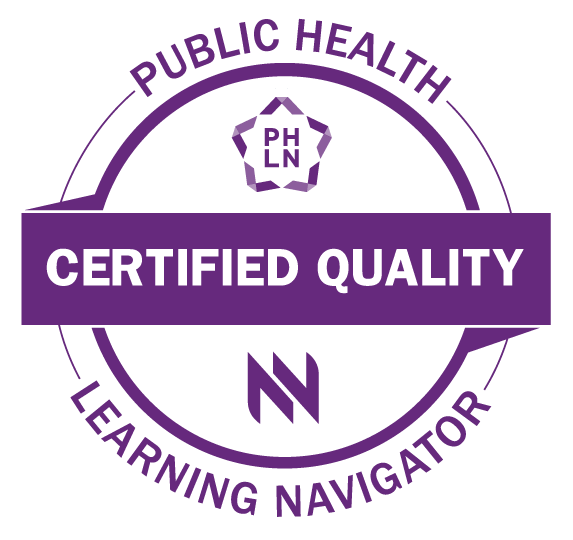
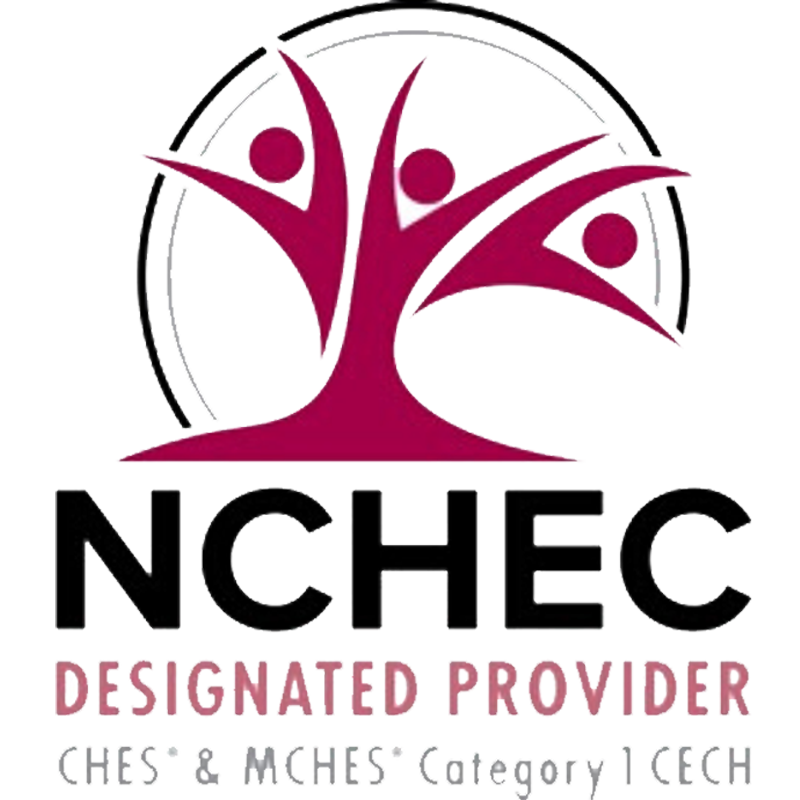
Course Information
- Audience: Community Health Workers, CHW Supervisors, Health Education Professionals
- Format: Self-paced
- Price: Free
- Length: 1 hour
- Credential(s) eligible for contact hours: Sponsored by New England Public Health Training Center (NEPHTC), a designated provider of continuing education contact hours (CECH) in health education by the National Commission for Health Education Credentialing, Inc. This program is designated for Certified Health Education Specialists (CHES) and/or Master Certified Health Education Specialists (MCHES) to receive up to 1 total Category I continuing education contact hours. Maximum advanced-level continuing education contact hours are 0. Provider ID: 1131137 Event ID: SS1131137_IECHW.
If you are not seeking CHES/MCHES contact hours, if you complete the evaluation, you will receive a Certificate of Completion. The Certificate will include the length of the course. - Competencies: Communication Skills, Health Equity Skills
- Learning Level: Awareness.
- Companion trainings: A Brief Introduction to HIPAA for CHWs, Interviewing
- Pre-requisites: None
About this course
Community Health Workers face ethical dilemmas on a daily basis. Ethical challenges can range in severity and in some cases can be quite complex. This short introduction raises awareness of what is an ethical dilemma and equips CHWs with tools to assist them when making decision about the best course of action.
What you'll learn
After completing this course, you will be able to...
- Recognize the definition and purpose of a code of ethics
- Identify conditions for a situation to be considered an ethical dilemma
- List 3 resources available to assist CHWs to make decisions about the best course of action for each ethical dilemma encountered.
Subject Matter Expert
-

Dawn Heffernan
Dawn Heffernan is a nurse and a public health professional who has supervised and trained community health workers for over a decade. Ms. Heffernan is passionate about community health and education. In addition to developing training for the New Public Health Training Center, she is currently working for Partners in Health as a case investigator for the corona virus pandemic.
Enrollment and Contact Hours
Select theEnroll button below to register for the course. If you have any trouble accessing the course, contact support@nephtc.org.
Acknowledgement:
This project is/was supported by the Health Resources and Services Administration (HRSA) of the U.S. Department of Health and Human Services (HHS) under grant number UB6HP31685 "Regional Public Health Training Center Program." This information or content and conclusions are those of the author and should not be construed as the official position or policy of, nor should any endorsements be inferred by HRSA, HHS or the U.S. Government.

Course Information
- Audience: Public health professionals, nurses, veterinarians, human health clinicians, environmental scientists, students, and others interested in the health of humans, animals and the environment
- Format: Self-paced online training
- Price: Free
- Length: 1 hour
- Credential eligible for contact hours:
CHES: Sponsored by New England Public Health Training Center (NEPHTC), a designated provider of continuing education contact hours (CECH) in health education by the National Commission for Health Education Credentialing, Inc. This program is designated for Certified Health Education Specialists (CHES) and/or Master Certified Health Education Specialists (MCHES) to receive up to 1 total Category I continuing education contact hour. Maximum advanced-level continuing education contact hour is 1. Provider ID: 1131137 Event ID: 08122020.
If you are not seeking a CHES/MCHES contact hours, if you complete the post-test and evaluation, you will receive a Certificate of Completion. The Certificate will include the length of the course.
- Credential eligible for contact hours: NCPD (Nursing Continued Professional Development) Accreditation: Boston University School of Medicine Continuing Nursing Education is accredited with distinction as a provider of nursing continuing professional development by the American Nurses Credentialing Center's Commission on Accreditation.
Contact Hours: 1.0 - Competencies: Public Health Sciences
- Learning Level: Awareness
- Companion trainings: None
- Pre-requisites: None
About this course
Have you heard the term "One Health" but aren't quite sure what it means or how it is different from public health? This course introduces One Health (human-animal-environmental health) to the public health practitioner. Areas of focus include zoonotic and vectorborne diseases, pollution and ecosystem change, comparative medicine, and human-animal-environment interactions. Multiple examples are provided, including for COVID-19. You'll come away with a new perspective on health!
What you'll learn
After completing this course, you will be able to...
- Define One Health
- Provide examples of how humans, animals and the environment are interconnected
- List the major competency areas for One Health practice
- List four main topic areas of One Health and provide examples within each and their areas of overlapping
- Describe multiple One Health aspects of COVID-19
Subject Matter Expert
-

Lynn Zanradi Blevins
Lynn Zanradi Blevins has been practicing public health in government and academic settings for 20 years in the areas of infectious disease, environmental health, emergency preparedness, and One Health (human-animal-environmental health).
Faculty Planning Committee
Lynn Blevins, MD, MPH - Faculty/Planning Committee has no relevant financial relationships to disclose and does not plan on discussing unlabeled/investigational uses of a commercial product
Karen McKenny, RN - CNE Course Advisor has no relevant financial relationships to disclose
Carmela Townsend, DNP, MS/MBA, RN, Accredited Provider Activity Director has no relevant financial relationships to disclose.
Naomi Moeller, BA, CHCP – Planning Committee has no relevant financial relationships disclose.
Enrollment and Contact Hours
Select theEnroll button below to register for the course. If you have any trouble accessing the course, contact support@nephtc.org.
Acknowledgement:
This project is/was supported by the Health Resources and Services Administration (HRSA) of the U.S. Department of Health and Human Services (HHS) under grant number UB6HP31685 "Regional Public Health Training Center Program." This information or content and conclusions are those of the author and should not be construed as the official position or policy of, nor should any endorsements be inferred by HRSA, HHS or the U.S. Government.
Disclosure Policy:
Boston University School of Medicine asks all individuals involved in the development and presentation of Accredited Continuing Education activities to disclose all financial relationships with ineligible companies. This information is disclosed to all activity participants prior to the start of the educational activity. Boston University School of Medicine has procedures to mitigate all relevant financial relationships with ineligible companies. In addition, faculty members are asked to disclose when any unapproved use of pharmaceuticals and devices is being discussed. In accordance with the Standards for Integrity and Independence in Accredited Continuing Education, all relevant financial relationships with ineligible companies that faculty, planners, authors and anyone who may be in control of content have been mitigated.
Disclaimer:
THIS CONTINUING MEDICAL EDUCATION PROGRAM IS INTENDED SOLELY FOR EDUCATIONAL PURPOSES FOR QUALIFIED HEALTH CARE PROFESSIONALS. IN NO EVENT SHALL BOSTON UNIVERSITY BE LIABLE FOR ANY DECISION MADE OR ACTION TAKEN IN RELIANCE ON THE INFORMATION CONTAINED IN THE PROGRAM. IN NO EVENT SHOULD THE INFORMATION CONTAINED IN THE PROGRAM BE USED AS A SUBSTITUTE FOR PROFESSIONAL CARE. NO PHYSICIAN-PATIENT RELATIONSHIP
* Yale School of Public Health, Office of Public Health Practice, a New England Public Health Training Center partner, is a designated provider of continuing education contact hours (CECH) in health education by the National Commission for Health Education Credentialing, Inc. All CHES credit inquiries are managed by YSPH
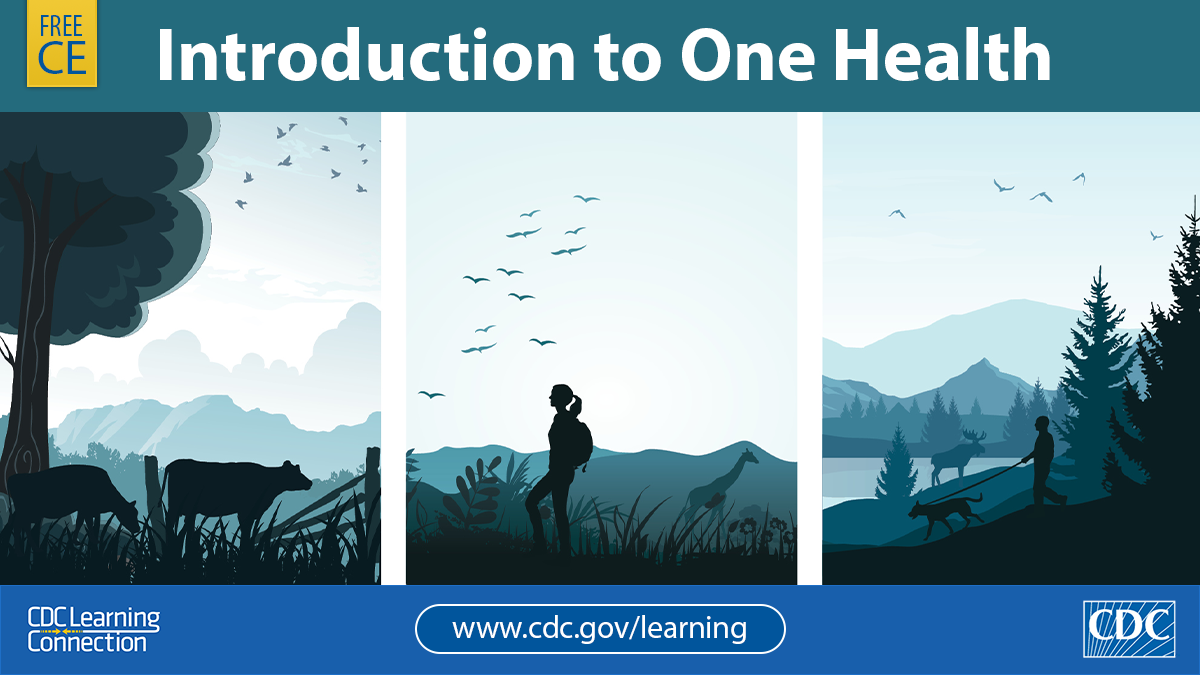
Course Information
- Audience: Public health professionals, especially program managers and communication specialists, in governmental and non-profit sectors. Public health stakeholders who would like to contribute their story to the public health dialog.
- Format: Self-paced
- Price: Free
- Length: 1.0 hours
- Credential(s) eligible for contact hours:
Sponsored by New England Public Health Training Center (NEPHTC), a designated provider of continuing education contact hours (CECH) in health education by the National Commission for Health Education Credentialing, Inc. This program is designated for Certified Health Education Specialists (CHES) and/or Master Certified Health Education Specialists (MCHES) to receive up to 1 total Category I continuing education contact hour. Maximum advanced-level continuing education contact hour is 1. Provider ID: 1131137 Event ID: SS1131137_04012020.
If you are not seeking a CHES/MCHES contact hours, if you complete the post-test and evaluation, you will receive a Certificate of Completion. The Certificate will include the length of the course.
- Competencies: Communication Skills
- Learning Level: Performance – learners will be able to outline a story using a storyboard.
- Companion trainings: None
- Pre-requisites: None
About this course
This course introduces storytelling as an effective communication tool in public health practice. After reviewing story structures, learners will review public health stories in multiple formats and outline their own story using a storyboard.
Do you have a great idea, data, or experience to share but can't seem to reach your intended audience? Create a story to match your communication goal, audience, delivery options. In this course you will learn the elements of story and become familiar with two formats that you can use to frame your story. After reviewing real public health examples in a variety for formats, try outlining your own story using a storyboard.
What you'll learn
After completing this course, you will be able to...
- Briefly describe the history of storytelling
- Explain why story is an effective means of communication
- Define the subject, audience, goal, and delivery format options for a story
- Define the elements of a story: hook, inciting incident, protagonist, antagonist, tension, climax and conclusion
- Explain two story formats: Story Mountain and the Journey Curve
- Describe how a storyboard is used to outline a story
- List questions to ask yourself when creating your title
- List ethical consideration of storytelling
- Outline a story in storyboard format
Subject Matter Expert
-

Lynn Zanardi Blevins
Lynn Zanradi Blevins has been practicing public health in government and academic settings for 20 years in the areas of infectious disease, environmental health, emergency preparedness, and One Health (human-animal-environmental health).
Enrollment and Contact Hours
Select theEnroll button below to register for the course. If you have any trouble accessing the course, contact support@nephtc.org.
Acknowledgement:
This project is/was supported by the Health Resources and Services Administration (HRSA) of the U.S. Department of Health and Human Services (HHS) under grant number UB6HP31685 "Regional Public Health Training Center Program." This information or content and conclusions are those of the author and should not be construed as the official position or policy of, nor should any endorsements be inferred by HRSA, HHS or the U.S. Government.
* Yale School of Public Health, Office of Public Health Practice, a New England Public Health Training Center partner, is a designated provider of continuing education contact hours (CECH) in health education by the National Commission for Health Education Credentialing, Inc. All CHES credit inquiries are managed by YSPH

Creating Persuasive Public Health Messaging
Do you struggle with describing your work and its public health impact? Avoid "story spaghetti" - learn how to craft compelling messages for public health projects and programs.
Course Information
- Audience: Public health professionals, or related professionals who work to improve the social determinants of health and population health.
- Format: Self-paced
- Price: Free
- Length: 1 hour
- Credential(s) eligible for contact hours: Sponsored by New England Public Health Training Center (NEPHTC), a designated provider of continuing education contact hours (CECH) in health education by the National Commission for Health Education Credentialing, Inc. This program is designated for Certified Health Education Specialists (CHES) and/or Master Certified Health Education Specialists (MCHES) to receive up to 1 total Category I continuing education contact hours. Maximum advanced-level continuing education contact hours are 1. Provider ID: 1131137 Event ID: PM1131137_10292020. If you are not seeking CHES/MCHES contact hours, if you complete the evaluation, you will receive a Certificate of Completion. The Certificate will include the length of the course.
- Competencies: Communication skills
- Learning Level: Awareness
- Companion Trainings Creating Your Marketing Pitch
Marketing Public Health - Supplemental materials: None
- Pre-requisites None
About this course
Creating Persuasive Public Health Messaging is a one-hour self paced course for public health managers and leaders. An "online, self-paced" version of the Creating Your Marketing Pitch half day workshop, this version contains examples from Rhode Island and Ohio.
This training is a collaboration project between Region 1 PHTC (New England Public Health Center - NEPHTC) and Region 7 PHTC (Midwestern Public Health Training Center - MPHTC).
What you'll learn
After completing this course, you will be able to...
- Identify the four pillars of a strong brand
- Explain how to formulate a clear, concise, compelling, and consistent elevator pitch
- Explain how to build a strong brand message hierarchy
- Discuss common mistakes to avoid when creating persuasive messaging
- Apply the characteristics of effective messaging using realistic public health case studies
Subject Matter Experts
-

Michele Levy
Marketing Consultant
ML Brand Strategy Consulting
Enrollment and Contact Hours
The Certificate of Completion will include the length of the module. Generally 50 – 60 minutes is equivalent to 1 contact hour. Contact hours may be applicable towards continuing education requirements for certain credentials. Check with your credentialing body to verify if the topic meets its continuing education requirements.
Acknowledgement: This project is/was supported by the Health Resources and Services Administration (HRSA) of the U.S. Department of Health and Human Services (HHS) under grant number UB6HP31685 "Regional Public Health Training Center Program." This information or content and conclusions are those of the author and should not be construed as the official position or policy of, nor should any endorsements be inferred by HRSA, HHS or the U.S. Government.
Having trouble accessing the course? Contact support@nephtc.org

Información del Curso
- Formato: Autorregulado
- Costo: Gratuito
- Duración: 1.5 horas
- Credencial(s) elegibles para horas de contacto: Patrocinado por New England Public Health Training Center (NEPHTC), un proveedor designado de horas de contacto de educación continua (CECH) en educación para la salud por la Comisión Nacional de Credencial de Educación para la Salud, Inc. Este programa está designado para Especialistas Certificados en Educación de Salud (CHES) y/o Especialistas Certificados en Educación de Salud (MCHES) para recibir hasta un total de 1 horas de contacto de educación continua de Categoría I. Las horas máximas de contacto de educación continua de nivel avanzado son 1. ID del proveedor: 1131137 ID del evento: SS1131137_IMEA.
Si no está buscando un horario de contacto de CHES/MCHES, si completa el post-test y la evaluación, recibirá un Certificado de Finalización. El certificado incluirá la duración del curso. - Competencias: Habilidades de Asociación Comunitaria
- Nivel de Aprendizaje: Concientización
- Material Complementario: Guía del Curso y Requisitos Técnicos (PDF)
- Requisitos: Ninguno
Sobre este curso
Como un promotor de salud en la comunidad, una función clave es proveerles cuidados a poblaciones vulnerables para poder conectarlos con los servicios apropiados. Para lograr esto, los trabajadores en el campo de la salud deben identificar cuando debería realizarse una tarea de alcance y como desarrollar un plan de alcance efectivo.
Qué aprenderás
Tras completar este curso, podrás:
- Describir qué son las tareas de alcance y los componentes del Modelo de Alcance de la Salud
- Identificar las cualidades y características de una población vulnerable y qué inicia el trabajo de alcance
- Conocer tips que te mantendrán seguro en tus esfuerzos
- Describir cómo seleccionar métodos y estrategias de alcance efectivos
- Listar los elementos de un plan de alcance efectivo
Experta en el Tema
-

Dawn Heffernan, RN, MS, CDEDirectora
Western Massachusetts
Public Health Training Center
Horario de Registro y Contacto
El Certificado de Realización incluirá la duración del módulo. Generalmente 50-60 minutos equivalen a 1 hora de contacto. Las horas de contacto pueden utilizarse para cumplir con los requisitos de ciertas credenciales. Confirme con su ente acreditador para verificar si este tema cumple con sus requisitos de educación continua.
¿No puedes acceder al curso? Contacta a support@nephtc.org
Reconocimiento:
Este Proyecto ha sido/fue subsidiado por la Administración de Recursos y Servicios de Salud (HRSA) del Departamento de Salud y Servicios Sociales de los Estados Unidos (HHS) bajo el número de subsidio UB6HP27877 "Programa Centro Regional de Entrenamiento en Salud". La información, contenido y conclusiones son propias del autor y no deben considerarse como la posición o política oficial del HRSA, HHS o del Gobierno de los Estados Unidos.

Course Information
- Audience: Dental health care personnel and administrative staff
- Format: Online Self-paced
- Price: Free
- Length: 10-part series, approximately 3.5 hours to complete
- Credential(s) eligible for contact hours: Sponsored by New England Public Health Training Center (NEPHTC), a designated provider of continuing education contact hours (CECH) in health education by the National Commission for Health Education Credentialing, Inc. This program is designated for Certified Health Education Specialists (CHES) and/or Master Certified Health Education Specialists (MCHES) to receive up to 1 total Category I continuing education contact hours. Maximum advanced-level continuing education contact hours are 1. Provider ID: 1131137 Event ID: SS1131137_CDCSIPP.
If you are not seeking CHES/MCHES contact hours, if you complete the evaluation, you will receive a Certificate of Completion. The Certificate will include the length of the course. - Credential(s) eligible for contact hours: Certificate of completion
VT: 3.5 Dental CEUsRhode Island: 3.5 Dental CEUs
- Competencies: Public Health Sciences Skills, Leadership and Systems Thinking Skills, Data Analytics and Assessment Skills
- Learning Level: Performance
- Companion Trainings:
- Supplemental materials: CDC Power Points of Basic Expectations for Safe Care Training
- Pre-requisites: Infection Prevention series for non-clinical staff
About this course
This 10 module training series covers the basic principles of infection prevention and control that form the basis for CDC recommendations for dental health care settings.
The training was recorded with an audience of dental professionals in Vermont on June 10th 2019. Adhering to the CDC script, presenter comments are excluded.
Vermont and Rhode Island dental health care personnel and administrative staff have a new option for learning about infection control in a dental practice setting! This 10 module series takes approximately 3.5 hours to complete and is based on the CDC's Basic Expectations for Safe Care training modules. This free course has been approved for 3.5 CE credits by both the RI and VT Boards of Dental Examiners.
What you'll learn
After completing this course, you will be able to...
- Provide basic infection prevention principles and recommendations for dental health care settings.
- Reaffirm standard precautions as the foundation for preventing transmission of infectious agents during patient care in all dental health care settings.
- Access links to full guidelines and source documents that can be referenced for more detailed background information and recommendations.
-
Kathy J. Eklund
Director of Occupational Health and Safety, RDH MHP
Subject Matter Expert
Ms. Eklund is the Director of Occupational Health and Safety, and the Forsyth Research Subject and Patient Safety Advocate at The Forsyth Institute. She is adjunct faculty at Regis College, Dental Hygiene Program where she teaches senior level courses in Oral Health Research and Evidence-Based Decision Making. Ms. Eklund serves as faculty for the New England AIDS Education and Training Center and HIVdent.org. She is a member and 2017-2019 Chair of the Organization for Safety Asepsis and Prevention (OSAP) Board of Directors. Ms. Eklund is a consultant to the ADA Council on Dental Practice.
Enrollment and Contact Hours
The Certificate of Completion will include the length of the module. Contact hours may be applicable towards continuing education requirements for certain credentials. Check with your credentialing body to verify if the topic meets its continuing education requirements.
Having trouble accessing the course? Contact support@nephtc.org

Course Information
- Audience: Public health professionals, or a related professionals who collaborate to improve population health or work to improve the social determinants of health
- Format: Self-paced
- Price: Free
- Length: 1 hour
- Credential(s) eligible for contact hours: Sponsored by New England Public Health Training Center (NEPHTC), a designated provider of continuing education contact hours (CECH) in health education by the National Commission for Health Education Credentialing, Inc. This program is designated for Certified Health Education Specialists (CHES) and/or Master Certified Health Education Specialists (MCHES) to receive up to 1 total Category I continuing education contact hours. Maximum advanced-level continuing education contact hours are 1. Provider ID: 1131137 Event ID: SS1131137_IST.
If you are not seeking CHES/MCHES contact hours, if you complete the evaluation, you will receive a Certificate of Completion. The Certificate will include the length of the course. - Competencies: Leadership and Systems Thinking Skills, Communication Skills
- Learning Level: Awareness
- Companion Trainings: 1 day live training, offered periodically through NEPHTC
- Supplemental materials: None
- Pre-requisites: None
About this course
This self-study course introduces learners to the fundamental tools of Systems Thinking.
Systems thinking provides a framework for identifying and addressing the underlying causes of complex problems. This approach minimizes responding to problem symptoms and the associated unintended consequences of quick fixes.
This training will provide an overview of key concepts and specific tools for use with a systems thinking approach.
Systems thinking skills were identified as one of the top new skills needed by the public health workers in a recent report "Building Skills For a More Strategic Workforce" from the National Consortium for Public Health Workforce Development.
What you'll learn
After completing this course, you will be able to...
- Define Systems Thinking and describe its application in understanding and resolving complex problems.
- Explain three Systems Thinking tools (the Iceberg, System Archetypes, and Belief/Action/Results (BAR) framework).
- Apply these Systems Thinking tools to an important issue in your workplace.
Subject Matter Expert
-

Julia Ross
Systems Thinking Consultant Ross & Company, Inc.
Enrollment and Contact Hours
The Certificate of Completion will include the length of the module. Generally 50 – 60 minutes is equivalent to 1 contact hour. Contact hours may be applicable towards continuing education requirements for certain credentials. Check with your credentialing body to verify if the topic meets its continuing education requirements.
Having trouble accessing the course? Contact support@nephtc.org

Course Information
- Audience: Public Health Professionals, Community Health Workers, Medical Professionals
- Format: Self-paced
- Price: Free
- Length: 1 hour
- Competencies: Communication Skills
- Learning Level: Awareness
- Supplemental materials: None
- Pre-requisites: None
About this course
Numbers can be hard for people to understand and apply, especially when related to public health and health care decision making. The concept of risk is particularly abstract and difficult to grasp. Numbers can pose a significant roadblock for people. For example, those with chronic diseases must use numbers to monitor their health on a daily bases. As health professionals, it is important to have the skills needed to assist people with numbers, especially people with basic and below basic numeracy and health literacy skills. This webinar offers tips and strategies health professionals can use to communicate about numbers and help people better manage and improve their health.
What you'll learn
After completing the training, you will be able to...
- Define numeracy and how it impacts health and healthcare
- Outline 10 tips to help adults use numbers for self-care and community health
- Consider risk communication strategies to help people make health related decisions
Subject Matter Experts
-

Sue Stableford
MPH, MSBDirector
UNE Health Literacy Institute -
Sabrina Kurtz-Rossi, M.Ed.Assistant Professor, Director
Tufts Health Literacy Leadership Institute
Enrollment and Contact Hours
Note there are two different options for enrolling in this course highlighted in the table below.
The Certificate of Completion will include the length of the module. Generally 50 – 60 minutes is equivalent to 1 contact hour. Contact hours may be applicable towards continuing education requirements for certain credentials. Check with your credentialing body to verify if the topic meets its continuing education requirements.
Having trouble accessing the course? Contact support@nephtc.org

Course Information
- Audience: Designed for ambulatory care settings, such as primary care clinics and doctor's offices. Intended audiences are administrative and clerical staff; non-licensed clinical staff; non- clinical staff; facilities staff and volunteers
- Format: Self-paced
- Price: Free
- Length: 25 Minutes credentials):
- Credential(s) eligible for contact hours: Sponsored by New England Public Health Training Center (NEPHTC), a designated provider of continuing education contact hours (CECH) in health education by the National Commission for Health Education Credentialing, Inc. This program is designated for Certified Health Education Specialists (CHES) and/or Master Certified Health Education Specialists (MCHES) to receive up to 1 total Category I continuing education contact hours. Maximum advanced-level continuing education contact hours are 1. Provider ID: 1131137 Event ID: SS1131137_BIPTBP If you are not seeking CHES/MCHES contact hours, if you complete the evaluation, you will receive a Certificate of Completion. The Certificate will include the length of the course.
- Competencies: Public Health Sciences Skills
- Learning Level: Awareness
- Companion Trainings
- Foundations of Infection Prevention in the Ambulatory Care Setting
- Standard Precautions in the Ambulatory Care Setting: The Basics of Hand Hygiene
- Standard Precautions in the Ambulatory Care Setting: Safe Cough Practices
- Standard Precautions in the Ambulatory Care Setting: Personal Protective Equipment and Safe Surfaces
- Supplemental materials: None
- Pre-requisites: None
About this course
This self-study course introduces learners to Transmission-Based Precautions. This course provides an overview of why and when Transmission-Based Precautions should be used, along with examples of how these precautions can be applied in the ambulatory care setting. The course may be taken in more than one sitting.
What you'll learn
After completing this course, you will be able to...
- Define Transmission-Based Precautions
- Recall the three categories of Transmission-Based Precautions
- Describe the unique features of each category of Transmission-Based Precautions
- Recognize when to use each category of Transmission-Based Precautions
- Recognize when to combine Transmission-Based Precautions
Subject Matter Expert
-

Louise-Marie Dembry
MD, FACP, MS, MBAProfessor of Medicine
(Infectious Diseases)
and of Epidemiology
(Microbial Diseases);
Director, Hospital Epidemiology
VA CT Healthcare System
Enrollment and Contact Hours
The Certificate of Completion will include the length of the module. Generally 50 – 60 minutes is equivalent to 1 contact hour. Contact hours may be applicable towards continuing education requirements for certain credentials. Check with your credentialing body to verify if the topic meets its continuing education requirements.
Having trouble accessing the course? Contact support@nephtc.org

Course Information
- Audience: Designed for ambulatory care settings, such as primary care clinics and doctor's offices. Intended audiences are administrative and clerical staff; non-licensed clinical staff; non- clinical staff; facilities staff and volunteers
- Format: Self-paced
- Price: Free
- Length: 20 Minutes
- Credential(s) eligible for contact hours: Sponsored by New England Public Health Training Center (NEPHTC), a designated provider of continuing education contact hours (CECH) in health education by the National Commission for Health Education Credentialing, Inc. This program is designated for Certified Health Education Specialists (CHES) and/or Master Certified Health Education Specialists (MCHES) to receive up to 1 total Category I continuing education contact hours. Maximum advanced-level continuing education contact hours are 1. Provider ID: 1131137 Event ID: SS1131137_BIPPPESS If you are not seeking CHES/MCHES contact hours, if you complete the evaluation, you will receive a Certificate of Completion. The Certificate will include the length of the course.
- Competencies: Public Health Sciences Skills
- Learning Level: Awareness
- Companion Trainings
- Foundations of Infection Prevention in the Ambulatory Care Setting
- Standard Precautions in the Ambulatory Care Setting: The Basics of Hand Hygiene
- Standard Precautions in the Ambulatory Care Setting: Safe
- Cough Practices
- Transmission-Based Precautions in the Ambulatory Care Setting
- Supplemental materials: None
- Pre-requisites: None
About this course
This self-study course introduces learners to personal protective equipment (PPE) and safe surfaces, two components of Standard Precautions. After a quick review of Standard Precautions, this course provides an overview of types and use of PPE in the ambulatory setting and when and how to treat potentially contaminated surfaces. The course may be taken in more than one sitting.
What you'll learn
After completing this course, you will be able to...
- Recognize commonly used personal protective equipment
- Recall actions to take is a surface may have been exposed to patient body fluid
- Subject Matter Expert
-

David B. Banach
MD, MPHAssistant Professor of Medicine
Head of Infection Prevention
and Hospital Epidemiologist
UConn Health
Enrollment and Contact Hours
The Certificate of Completion will include the length of the module. Generally 50 – 60 minutes is equivalent to 1 contact hour. Contact hours may be applicable towards continuing education requirements for certain credentials. Check with your credentialing body to verify if the topic meets its continuing education requirements.
Having trouble accessing the course? Contact support@nephtc.org

turcotteoblem1989.blogspot.com
Source: https://www.nephtc.org/course/index.php?categoryid=2
0 Response to "New England Center for Continuing Education"
Post a Comment